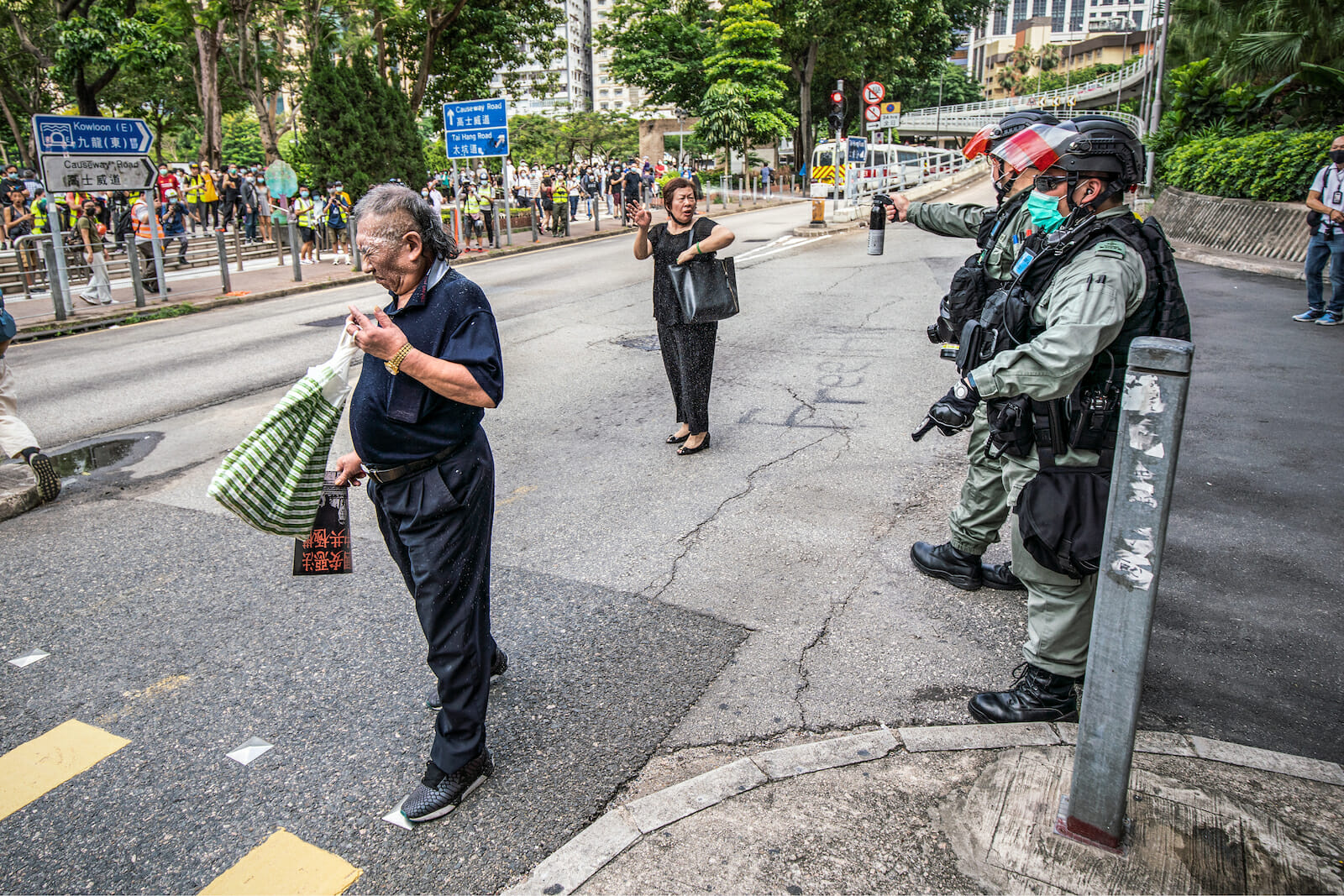
Who Rules Hong Kong?
To witness the geopolitical competition between the United States and China playing out, look no further than Hong Kong.
Hong Kong, one of China’s two semi-autonomous regions, has experienced protests since last year over concerns of overreach from Beijing. In late November 2019, the U.S. Congress passed the Hong Kong Human Rights and Democracy Act of 2019, which made the United States’ special economic treatment of Hong Kong dependent on Hong Kong’s degree of independence from Beijing.
For many Hong Kong residents and international observers, Hong Kong’s independence is tied to Beijing’s ability to control the city’s internal security affairs. Beijing’s new security law covers concepts ranging from treason, secession, sedition, subversion, and foreign interference. Interestingly, Hong Kong is empowered to pass its own security law covering such areas via Article 23 of the city’s Basic Law, Hong Kong’s unique constitution. But Hong Kong hasn’t passed its own security law since the city was transferred to China from the UK in July 1997. The Hong Kong legislature attempted to do so in 2003 but backed down due to protests.
Because the Hong Kong Human Rights and Democracy Act threatened economic punishment over reduced freedoms in Hong Kong, it is reasonable to view the act as a deterrent to Chinese overreach. It is now clear that America’s attempt to deter Beijing has failed.
What does Beijing’s new security law outlaw?
In May, it was reported that secession, subversion, terrorism, and foreign interference in Hong Kong would be outlawed by the new law. Now that the security law is implemented, its effects are more observable. Persons using slogans promoting independence or revolution can be arrested. Protestors are now using blank sheets of paper to represent the banned phrases.
According to the BBC, the law outlines the following:
- Damaging public transport facilities can be considered terrorism.
- Beijing will establish a new security office in Hong Kong, with its own law enforcement personnel outside the local authority’s jurisdiction.
- Inciting hatred of China’s central government and Hong Kong’s regional government are now offences under Article 29.
- The law can also be broken from abroad by non-residents under Article 38.
- Some trials will be heard behind closed doors. Sentences can range from three years to life in prison.
In a press statement released by the State Department after the passage of the security law, Secretary of State Pompeo wrote, “No reasonable person can assert today that Hong Kong maintains a high degree of autonomy from China, given facts on the ground.”
Who Rules Hong Kong?
Hong Kong and China are part of the “one country, two systems” arrangement. Beijing, being the central government, naturally places emphasis on the “one country” part. From Beijing’s perspective, China always had ultimate authority over the city’s security. After all, the city is part of China. Moreover, Hong Kong can still have elections. It has its own legislature. Hong Kongers have freedom of speech—as long as it is not seditious, promotes terrorism, or secessionist. Of course, others, including many Hong Kongers, place greater emphasis on the “two systems” phrase. Although part of China, Hong Kong, from this perspective, is fundamentally different from China and should remain so as long as possible.
The passage of the national security law harms Hong Kong’s way of life, particularly its democratic processes. This is clear from a speech given this summer by the Deputy Director of the Hong Kong and Macau Affairs Office, wherein he acknowledges bypassing the Hong Kong legislature on the grounds of national security: “Of course, if the Hong Kong Special Administrative Region can complete relevant legislation on its own, plug relevant legal loopholes, improve relevant law enforcement mechanisms, and effectively crackdown on relevant crimes, it will naturally not require the central government to take action. However, it is so difficult for the National Anthem Bill to pass in the Legislative Council, and it may be even more ‘a fantasy’ to complete the national security legislation within a predictable time. The central government’s move at this time is an inevitable choice under real politics.”
Beijing’s move allows it to claim it has maintained the “one country, two systems” principle while the pro-democracy side has clear evidence that China intends to suppress Hong Kong’s unique liberties. The question of autonomy reflects an important underlying concern: which has more power in Hong Kong: Beijing or Hong Kong?
How has America responded?
Few strategies successfully change another state’s security policies, especially when it lies across an ocean. However, the United States has responded with strong economic pressures. Secretary Pompeo’s decertification of China means tariffs and sanctions. President Trump issued an executive order stating that “Hong Kong will now be treated the same as mainland China: no special privileges, no special economic treatment, and no export of sensitive technologies.”
The view from the White House: if China treats Hong Kong like China, the United States will deal with Hong Kong as if it is China.

